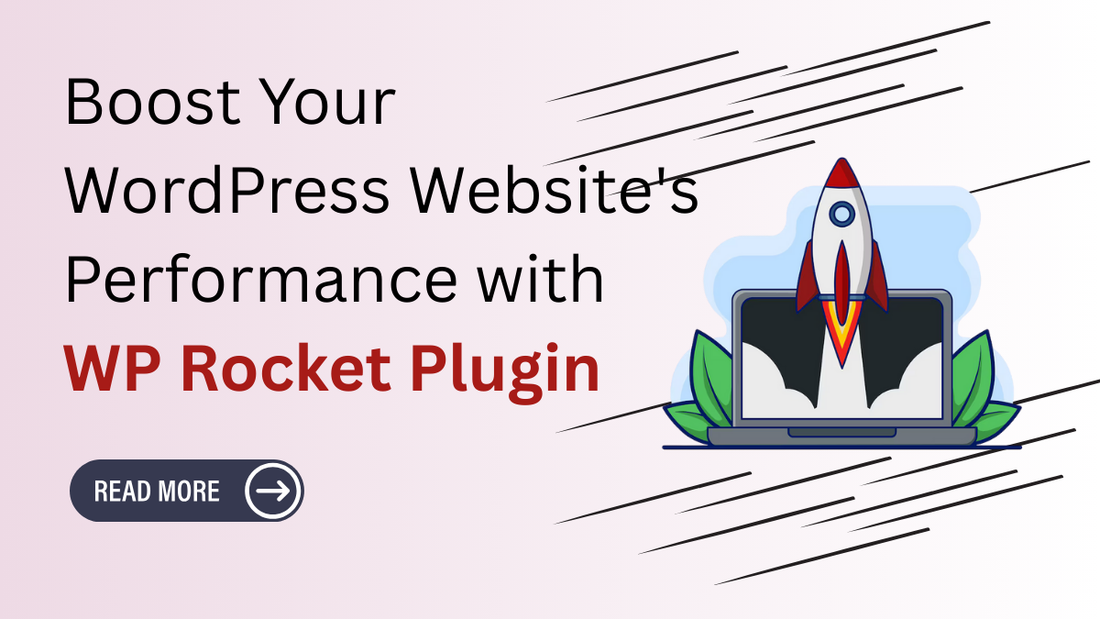
Boost Your WordPress Website's Performance with WP Rocket Plugin
Introduction
Website speed is crucial in user experience, search engine rankings, and conversion rates. A slow-loading website can drive visitors away, impacting engagement and revenue. One of the most effective ways to optimize WordPress site speed is by using WP Rocket Plugin, a powerful caching solution designed to enhance website performance without requiring technical expertise.
WP Rocket Plugin is an all-in-one performance optimization tool that improves loading speed through caching, file compression, database optimization, and other advanced features. Unlike other caching plugins that require extensive configuration, WP Rocket is easy to set up and delivers instant improvements in website speed.
At Omega Themes, we understand the importance of having a high-performing website. WP Rocket is one of the best solutions for website owners who want to enhance speed, improve SEO rankings, and provide a seamless browsing experience for their users. This guide’ll explore the features, benefits, and why WP Rocket is a must-have plugin for WordPress websites.
Why Does Page Speed Matter?
Page speed is a crucial factor affecting user experience, search engine rankings, and overall website performance. A slow-loading website can lead to higher bounce rates, lower engagement, and lost revenue opportunities. Google considers page speed a ranking factor, meaning faster websites are more likely to appear higher in search results. Additionally, users expect pages to load within a few seconds, and any delay can negatively impact conversions and customer satisfaction.
19 Tips to Speed Up Your WordPress Site

Improving WordPress site speed requires a combination of simple optimizations and advanced techniques. Here are 19 practical ways to enhance website performance:
-
Choose a reliable hosting provider: Opt for managed WordPress hosting for better speed and reliability.
-
Use a lightweight WordPress theme: Avoid themes with excessive built-in features that slow down your site.
-
Install a caching plugin: WP Rocket Plugin is an excellent choice for boosting page speed.
-
Optimize images: Compress and use modern formats like WebP to reduce file size.
-
Enable lazy loading: Load images and videos only when users scroll to them.
-
Minify CSS, JavaScript, and HTML: Reduce file size by removing unnecessary characters and whitespace.
-
Use a Content Delivery Network (CDN): Distribute content across global servers for faster delivery.
-
Reduce the number of HTTP requests: Combine CSS and JavaScript files where possible.
-
Enable GZIP compression: Compress website files to speed up page load times.
-
Disable unused plugins: Deactivate and remove unnecessary plugins to prevent slowdowns.
-
Optimize your database: Regularly clean up spam comments, old revisions, and expired transients.
-
Limit post revisions: Reduce the number of stored post revisions to prevent database bloating.
-
Use faster DNS providers: Switching to providers like Cloudflare or Google DNS can improve speed.
-
Host videos externally: Upload videos to YouTube or Vimeo instead of hosting them on your server.
-
Enable browser caching; Store static files in users' browsers to load pages faster.
-
Reduce redirects: Too many redirects can slow down website loading times.
-
Load Google Fonts locally: Hosting fonts on your server can improve performance.
-
Use asynchronous loading for CSS & JavaScript: Load resources efficiently to prevent render-blocking.
-
Regularly update WordPress core, themes, and plugins: Keeping everything up-to-date ensures smooth functionality.
3 Basic Speed Optimization Steps (The Low Hanging Fruit With No Coding Required)

1. Choose a Powerful Hosting
A fast and reliable hosting provider is the foundation of a high-performing website. Managed WordPress hosting services like Kinsta, SiteGround, or WP Engine are optimized for speed, security, and performance.
2. Use a Cache Plugin
Caching plugins like WP Rocket significantly enhance speed by storing static versions of your pages. This reduces the need for repeated database queries and speeds up loading times.
3. Optimize Your Images and Use Lazy Loading
Large image files can slow down your website. Use tools like TinyPNG or WP Smush to compress images. Implement lazy loading, which ensures images only load when users scroll to them, reducing initial page load times.
7 Best Practices to Improve WordPress Performance
1. Use the Right Theme: Choose a Theme Optimized for Speed
Lightweight themes like Astra, GeneratePress, and Neve are designed for speed and efficiency. Avoid themes with unnecessary built-in features that slow down your site. Pairing WP Rocket Plugin with responsive WordPress themes ensures your website performs optimally across all devices while maintaining fast loading times.
2. Don't Use a Slider
Sliders often load multiple large images and scripts, negatively impacting performance. Instead, use a static image or a lightweight hero banner for better speed.
3. Eliminate Bloated Plugins
Each installed plugin adds scripts and database queries, potentially slowing down your site. Regularly review and remove unnecessary or outdated plugins.
4. Upload Large Media Files to Suitable Services
Hosting large media files on your server can slow down loading times. Instead, use platforms like YouTube, Vimeo (for videos), or third-party file storage services like Google Drive for large downloads.
5. Make Use of a Content Delivery Network (CDN)
A CDN, such as Cloudflare or StackPath, distributes your website content across multiple servers worldwide, ensuring faster loading speeds for visitors in different locations.
6. Keep Your WordPress Site Up-to-Date
Regular updates for WordPress, plugins, and themes include performance improvements and security patches. Staying up-to-date ensures your website runs efficiently.
7. Limit Post Revisions
WordPress saves multiple revisions of each post, leading to database bloat. Limiting post revisions to a reasonable number (e.g., 3-5) can help maintain database efficiency.
9 Advanced WordPress Performance Optimization Strategies
For users looking to push their website speed even further, here are some advanced techniques:
-
Use Object Caching: Reduce database queries with object caching (Redis or Memcached).
-
Implement Server-Level Caching: Hosting providers like SiteGround offer built-in caching options.
-
Enable HTTP/2 and HTTP/3: These protocols improve loading speed and security.
-
Optimize Database Queries: Reduce slow queries with database optimization tools like WP-Optimize.
-
Host Fonts Locally: Reduce external HTTP requests by self-hosting Google Fonts.
-
Reduce Third-Party Scripts: Limit scripts from ads, analytics, and social media widgets.
-
Optimize WooCommerce Performance: Disable cart fragments and unnecessary WooCommerce scripts.
-
Leverage Prefetching and Preloading: Load key resources before they're needed.
-
Use AMP (Accelerated Mobile Pages): Improve mobile page speed with Google AMP.
Following these WP Rocket Plugin optimization strategies ensures your website loads faster, ranks higher, and delivers a seamless user experience.
Looking for the fastest-loading WordPress themes to enhance your website’s performance? The WP Theme Bundle offers a diverse collection of high-quality themes for various niches, including business, eCommerce, blogging, and more.
Conclusion
Website speed is crucial in user experience, search engine rankings, and overall business success. A slow-loading website can lead to high bounce rates, reduced engagement, and lost revenue. Implementing the right strategies, such as choosing a reliable hosting provider, optimizing images, using caching plugins like WP Rocket Plugin, and following best practices, can significantly enhance your WordPress site's performance.
For beginners, starting with basic optimizations like caching and image compression can bring immediate improvements without technical knowledge. More advanced users can dive into server-level caching, database optimization, and Content Delivery Networks (CDNs) to improve performance.
At Omega Themes, we understand the importance of a fast website and recommend tools like WP Rocket Plugin to help WordPress users achieve outstanding speed and efficiency. Integrating these techniques ensures a smooth, high-performing website that keeps visitors engaged, improves SEO, and maximizes conversions.







